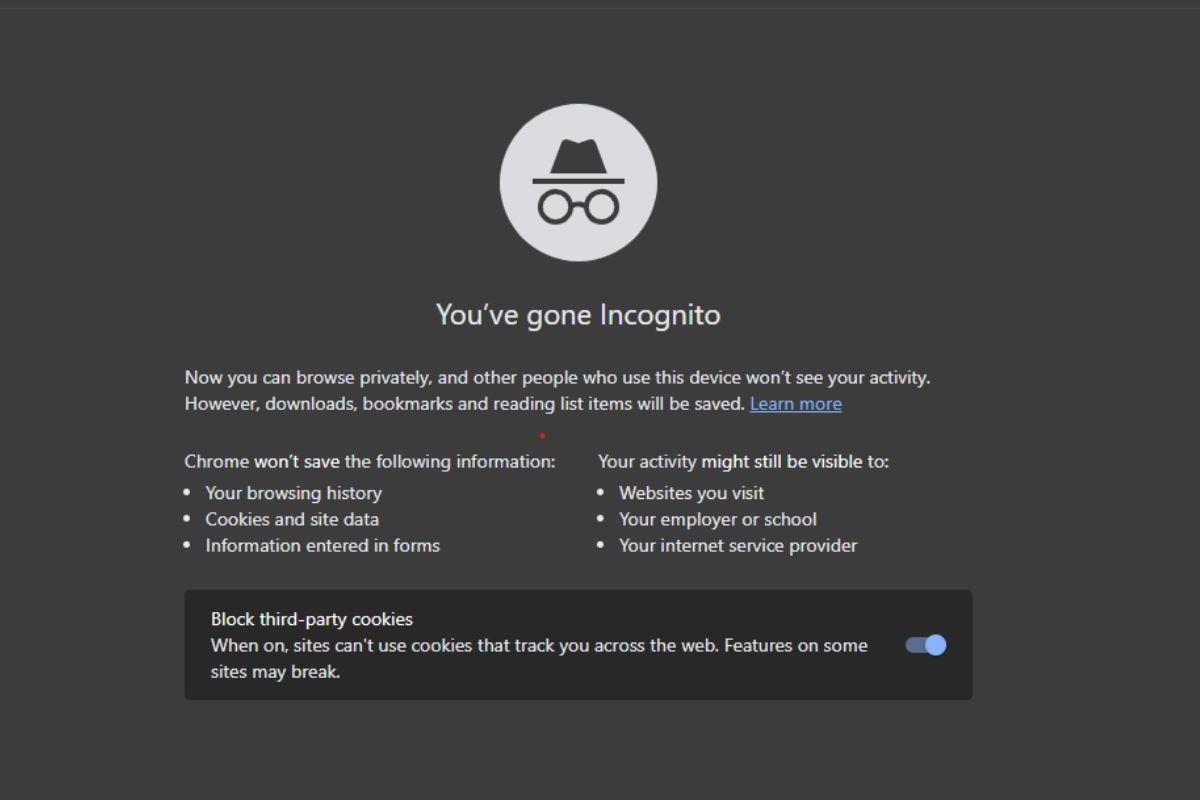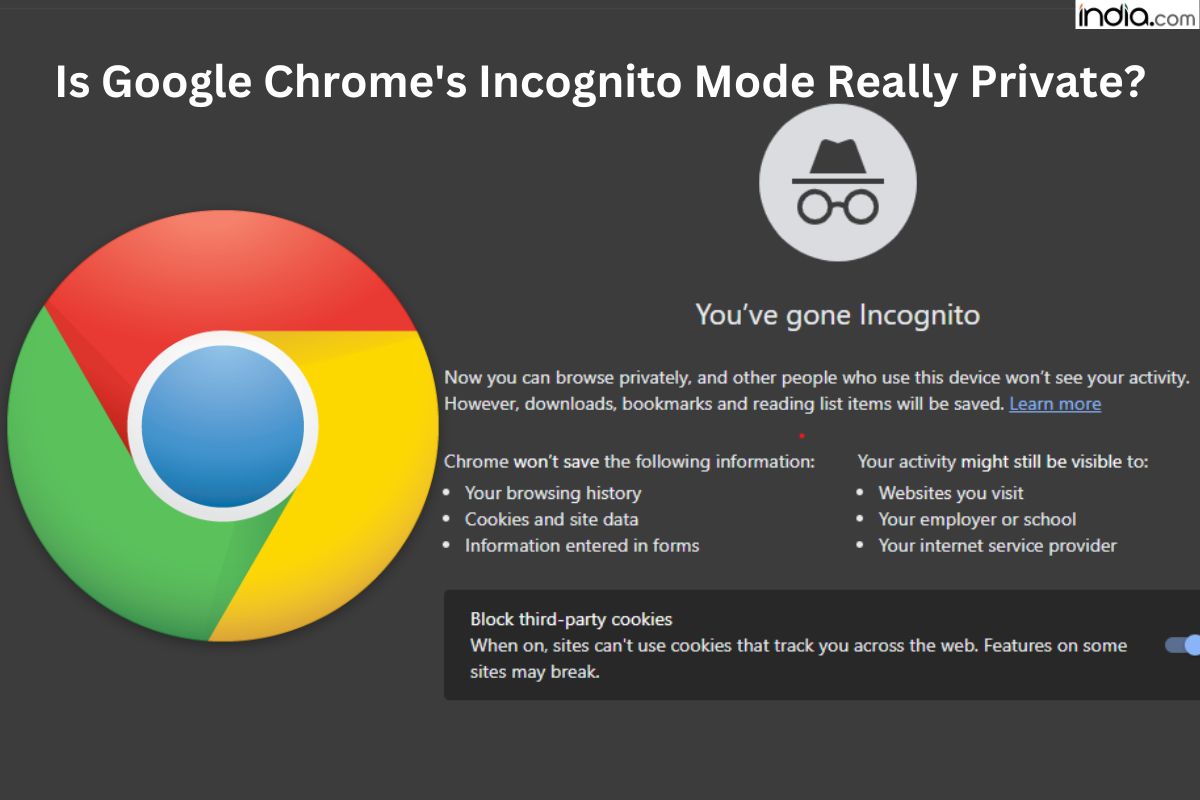A recent update was displayed on Google Chrome revealed that their Incognito browsing activity can still be tracked by websites. Find complete details here.
New Delhi: Most of Android and Desktop users prefer to use Google Chrome as their primary browser. It is common for users to switch to Chrome’s Incognito to avoid history traces on their browser or storing up unnecessary cookies while they surf online. However, a recent update was displayed on the browser, letting users know that their Incognito browsing activity can still be tracked by websites.
Google’s New Disclaimer For Chrome
The Google Chrome Canary is a developer-only version of Chrome that includes experimental releases and is updated almost every night, possibly previewing future permanent additions. The update was uploaded to the build on January 15, as MSPowerUser originally reported.

The new update highlights the privacy of Google Chrome’s Incognito Mode.
After the 122.0.6251.0 version update of Chrome Canary, the Incognito tab’s disclaimer read as: “Others who use this device won’t see your activity, so you can browse more privately. This won’t change how data is collected by websites you visit and the services they use, including Google.”
Originally, the disclaimer read: “Now you can browse privately, and other people who use this device won’t see your activity,” and is yet to be updated on the stable version of Chrome.
A final settlement agreement is expected by February 24, 2024, according to the Associated Press. The changed phrasing is a result of Google’s December 2023 agreement to settle a class-action lawsuit filed in 2020 that claimed the company misled users into believing they were not being tracked while using Incognito mode.
Claude Mandy, Chief Evangelist of Data Security at Symmetry Systems, told the media that “The change that Google Chrome has made is unfortunately not surprising. They addressed the accuracy of their disclosure in line with their business, which was their original defence, rather than making meaningful changes to support privacy.”
Is Google Chrome’s Incognito Mode Really Private?

“Now you can browse privately, and other people who use this device won’t see your activity,” the original description is yet to be updated on stable versions of Chrome
In August 2023, Judge Yvonne Gonzalez Rogers denied Google’s motion for summary judgement in the privacy lawsuit, citing the fact that not only can websites continue to track users who use Incognito, but Google can also track users who visit sites that use Google services, like Google Ad Manager and Google Analytics.
The original Chrome Incognito mode disclaimer stated that users can “browse privately,” while the new version only claims “more” privacy while browsing. Both versions note that web activity may still be visible to sites one visits, but the newer version more clearly informs users that websites, including Google, continue to collect browsing data in Incognito tabs.
When will Disclaimer Come to Stable Chrome?
It is unclear if or when the updated Incognito tab will be added to stable versions of Chrome in the future. SC Media contacted a Google representative for a comment but did not receive a response.
“Google already tells users that their activity might be visible on third-party websites. This statement is consistent. However, it does not tell users that their activity is certainly visible to Google, which is the issue,” Rogers wrote.
Microsoft Edge’s InPrivate splash page states that InPrivate browsing does not “Give you additional protection from tracking by default.”
Meanwhile, Firefox’s Private Browsing tab claims that this browsing mode “does not make you anonymous” and provides a link to an article by Firefox titled “Common Myths about Private Browsing.”
John Bambenek, president of Bambenek Consulting, emailed SC Media to point out that “Incognito mode, and its equivalent to other browsers, has never offered much more privacy protection than people hiding their web viewing habits from their parents or partners.”
Meanwhile, Google is currently testing its Google Chrome Tracking Protection feature, which automatically disables third-party cookies by default for 1% of Chrome users starting Jan. 4, 2024.
While this is going on, Google is testing a feature called Google Chrome Tracking Protection, which will automatically disable third-party cookies for 1% of Chrome users by default starting on January 4, 2024.

